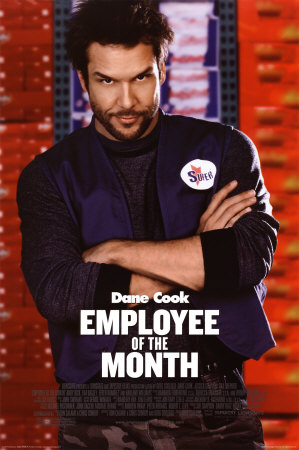So, you’ve submitted your CV and you’ve been called for interview. What next? Sing and dance, by all means, for a few hours, anyway, but then you’ve got to prepare. Unless you are some high powered executive or participating in some sort of selection centre, you will probably only have one interview per job. That’s only one chance to show your prospective employer that you are the best thing since sliced bread so you’ve got to give it your best shot!

Job Interview Tips
by Telesto
You’ve worked hard on polishing your CV and you’ve been offered an interview. Now is your chance to really shine so go in there and give it your best. Oh, but wait, there’s more
I’ve been an HR professional for more years than I care to remember, and interviewed more people than I’ve had hot dinners. Maybe. What I am sure about though, is that I’ve learned a few things along the way about what to do and not to do at an interview. By the way, I’m assuming that this is a face-to-face interview, but most of what follows also applies for a telephone interview or group interview.

DO:
- Research the company or organisation for which you are hoping to work. They will expect you to have done this, and if you don’t, it just looks as though you are not interested. So check their accounts, if it is a private sector organisation (in the UK, this information is all readily available through companies house), check their latest products, stores, etc. If it’s a charity, see what the latest campaigns are, etc. The internet is a great source of information, so make use of it.
- Ask what kind of interview it will be - different organisations give different names to interview types, so it’s impossible to go through them all here, but for most organisations, unless it’s a very specialised role, it is likely to be structured (or semi-structured) and relating to the competencies required for the job. Look at the job description and person specification and try to work out what you might be asked. Then think of answers and practice them. So, for example, if you are being interviewed for the role of customer service assistant, you might be asked to give an example of a time when you have had to deal with a difficult customer. Be prepared for the interviewer(s) to probe you to get more in formation, and don’t be put off by this.
- Make sure you know what you put on your application form and/or CV; you may be asked questions about it. If you’ve written that you have a particular skill, be prepared to explain how and when you’ve used it.
- There are some questions that are pretty standard wherever you work eg “Why do you want the job?” “What do you think this role entails?” “What are your strengths and weaknesses?” “Why should we choose you over the other candidates?” They aren’t asking you this to catch you out, but the interviewers want to know whether you’ve found out about the job and the company, or whether any old job will do. When talking about your weaknesses, try to turn them into positives. For example, if people tell you that you are opinionated, you could list it as one of your weaknesses, but then add something like, “But I have always thought through both sides of the argument.” (Not everyone will think being opinionated is a weakness!)
- The interviewer(s) will expect you to be nervous, and will make allowances for this. Just try to stay calm and take a breath before you answer. Smile when you answer the questions and make eye contact with the interviewer (unless they are writing down your answers, but any interviewer worth their salt will look up from time to time).
- Make sure you have checked the address and your route there before leaving home, and leave extra time in case of travel delays. If you don’t know the area, it’s worth having a practice run of the journey at the same time of day beforehand.
- It shouldn’t matter what you look like but it does. Research shows that it only takes about 10 seconds to make an impression! So get your outfit ready a few days before, make sure it is clean and pressed and that your shoes are clean too. (Interviewers are people and if the pet hate of one of them is unpolished shoes, unconsciously, it will go against you. It can work the other way too, it’s called the horns and halos effect.)
- Dress one level above the role for which you are applying - it makes it look as though you want to succeed. Wearing something red makes a lasting impression but be careful about that - if red is not a colour in keeping with the company, don’t wear it, and if you do wear it, ensure the impression you make is a good one.
- Get a good night’s sleep the night before. You won’t impress anyone by yawning in the interview.
- Sell yourself. Be positive and enthusiastic.
- Prepare some questions to ask at the end of the interview - questions relating to the job and the company.
- Turn your mobile ‘phone off before going into the interview.
- Make sure that you have researched the salary rates for the job, if it’s a private sector company (usually, in the public sector, there is little scope for negotiation, except with very senior roles). Aim for the top end of the salary range as your starting point.
Don't
- Be late.
- Swear in the interview, or overuse slang. Also, be careful with jargon, you may understand what a TLA* is, but your interviewer may not.
- Slouch. Sit up straight in the chair and look as though you mean business.
- Tell lies. Even if you get away with it at interview, if the employer finds out later, it could constitute a breach of contract and you could end being dismissed.
- Be arrogant.
- Get into a discussion about politics or religion or anything else that is likely to cause an argument. In fact, don’t get into an argument with the interviewer full stop!
- Read notes from your CV or application. Many employers won’t let you do this anyway.
- Criticise former colleagues or employers. At best, the interviewer(s) may think you are a gossip, at worst, it may cost you the job because if that’s what you say about your last employer, what will you say about them?
*TLA = Three letter acronym.
Above All
Remember that your interviewers are human beings. If they have a lot of people to interview, it’s mentally hard work - they have to concentrate on what people are saying to them, so try to work with them, not against them.
There may be one or two people interviewing you. Nowadays, I usually interview with at least one other person, for a number of reasons, one of which is not to try to put the candidate off.
If you don’t get the job, ask them for feedback but don’t be concerned if you don’t get it, it just isn’t always possible, and against policy in some organisations.
And remember to thank them for their time at the end of the interview.
Good Luck!
You might also like
For Stay At Home Moms, Re-entering Workforce Isn't EasyBeing a stay at home mom is a tough job. It's not just one job, but many, and...
Jobs For You: Becoming a Market Research InterviewerAn article about becoming a market research interviewer. How to get hired: wh...










 Identity Theft and How it Feelson 02/01/2015
Identity Theft and How it Feelson 02/01/2015
 Barts Hospital - a National Treasureon 01/24/2015
Barts Hospital - a National Treasureon 01/24/2015
 Urban Foxeson 01/11/2015
Urban Foxeson 01/11/2015
 How do you know which hosting platform to choose?on 01/03/2015
How do you know which hosting platform to choose?on 01/03/2015



Comments
Thank you Mira, thanks for reading.
These are some great tips. Thank you for sharing from experience what matters most in an interview.
Thank you. I always try to give friends "mock" interviews beforehand because I think they help too. I think the only way to help with feeling tense are breathing exercises.
I always get tense before and during an interview no matter if it is interview 1000. Good tips.